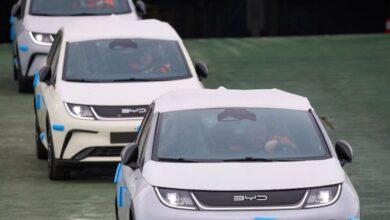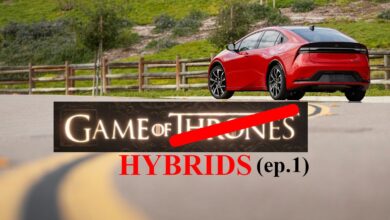‘The continued momentum behind electric cars is clear in our data’

In 2024, more than one in five cars sold will be electric, according to a report from the International Energy Agency.
Each year, the IEA publishes the Global EV Outlook, which analyzes recent changes and developments with electric vehicles. According to the report, global EV sales will remain “robust as major markets progress and emerging economies ramp up.”
The report suggests that global sales of EVs could reach 17 million by the end of the year. Last year, nearly 14 million electric cars were registered, accounting for 18% of all cars sold. This is up from 14% of all cars sold in 2022.
🗣️ Which factor would most effectively motivate you to use an electric scooter-sharing service?
🔘 Saving money 💰
🔘 Avoiding traffic and parking 🛴
🔘 Reducing pollution 🌎
🔘 Not interested in e-scooters 🚫
🗳️ Click your choice to see results and speak your mind
“The continued momentum behind electric cars is clear in our data, although it is stronger in some markets than others,” IEA executive director Fatih Birol said. “Rather than tapering off, the global EV revolution appears to be gearing up for a new phase of growth.”
In Q1 2024, the sales of EVs were roughly equivalent to the number of EVs sold in all of 2020. While China, the United States, and Europe account for a majority of electric vehicles sold, there are emerging markets with rises in EVs, including Vietnam, Indonesia, Brazil, and Thailand.
Electric vehicles help eliminate reliance on traditional sources of fuel in internal combustion engine cars, which helps clean the air and mitigate inclement weather disasters caused by these sources of dirty energy. EVs can also save you money, with Consumer Reports finding electric vehicle drivers spend 60% less on fuel annually.
The increase in demand and supply of EVs comes from investment in the production of these vehicles and incentives for drivers to buy. In the U.S., you can receive tax credits for electric vehicles purchased after 2023. In China, investment in battery production and charging infrastructure helped the country become the leader in electric vehicles. While Tesla drives a majority of the sales of EVs in the U.S., China continues to fund different automobiles, including an EV that allows for longer battery life.
As the rise of EVs bought continues to rise, so too does the demand for alternative infrastructure, including accessible charging stations and increased investment. Honda has pledged to invest $11 billion in their electric vehicle production in Canada, while major chains, like Walmart, Target, and Subway, are planning to build EV charging stations across the United States.
Are you in the market for a new car? Check out our guide on making your next car electric.
Join our free newsletter for cool news and actionable info that makes it easy to help yourself while helping the planet.



